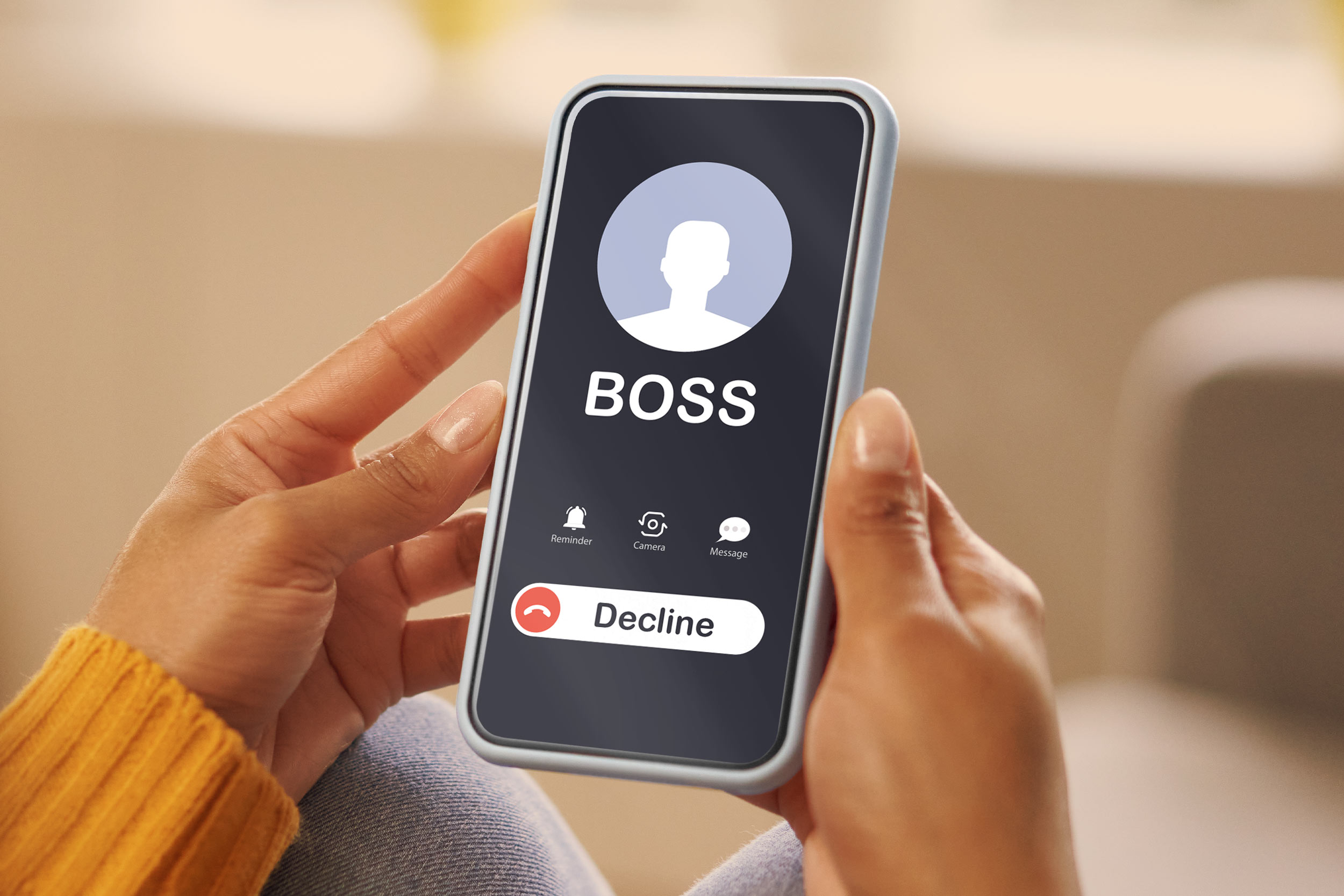UVA Today tapped into his expertise to get a better sense of the “right to disconnect” bill and its potential impact on the workforce.
Q. What would you see as a benefit of this law?
A. It would protect some people who feel like their private lives and their restorative time have been intruded upon by their companies. That's the obvious benefit.
The other benefit is it would enforce better decision-making and more common sense and better communication between managers and employees in setting up working protocols. It would set up a two-way dialogue. It shouldn't just be the manager’s expectation. There should be a two-way talk, discussion about what the employee’s expectations are as well. I think it can help foster more of that.
Q. What do you see as this potential law’s flaws?
A. It's riddled with a lot of problems. First of all, with the $100 fine for managers, are employees really going to report on their bosses? Maybe some will, but that could be career-limiting, that could cause retribution, that could cause a whole other set of issues. So it feels a little extreme.
The other area is, how do you define “non-crisis” versus “crisis”? An employee’s interpretation of, “Well, this is not a crisis,” may be very different from their manager, the CEO.
Q. What’s an example of that situation?
A. I worked for Coca-Cola in a role where I was supporting the chairman and CEO. And if Muhtar Kent, who was my CEO at the time, called me in Istanbul on a Sunday afternoon saying he needed five talking points for an unexpected government meeting in Ankara the following morning, I didn’t have the luxury of saying, “I’m sorry, it’s Sunday, man. You’re violating my rights here.”
That kind of thing, I just don't think is realistic. Maybe on some lower-level jobs, certainly some of that could work, but I think as you rise in an organization, and the more responsibility you have and how you interpret “crisis” versus “non-crisis,” it would get foggy.






